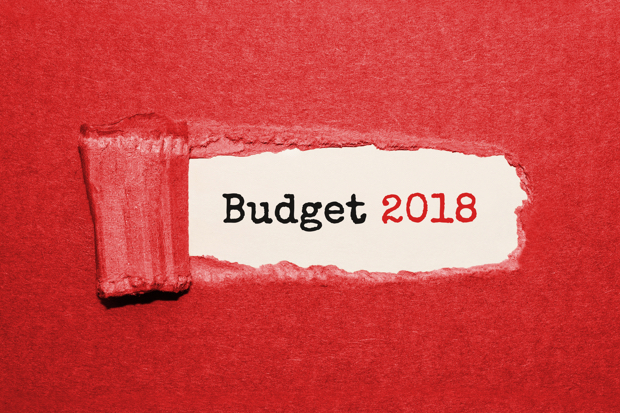5 October 2018
ACFO urges chancellor to give fleets and company car drivers long-term tax stability and clarity in 2018 Budget
Chancellor of the Exchequer Philip Hammond must announce the company car benefit-in-kind tax regime until the end of the 2024/25 financial year - and not undermine long-term fleet planning by introducing changes during the period.

That's the plea from ACFO, the UK's premier fleet decision-makers' organisation, as it revealed its 2018 Budget 'wish list' following meetings with HM Revenue and Customs (HMRC), HM Treasury and Department for Transport officials.
Following months of benefit-in-kind tax uncertainty resulting in some fleets putting vehicle replacement on hold and some employees opting out of company car schemes, ACFO chairman John Pryor has called for long-term tax stability and clarity in the Budget Statement, which will be on Monday, October 29.
Company car benefit-in-kind tax rates have already been published up to the end of the 2020/21 financial year. However, following the introduction of the Worldwide harmonised Light vehicles Test Procedure (WLTP) for homologating vehicle emission and MPG data, the government may decide to realign rates from April 2020.
Four years is typically the company car replacement cycle favoured by employers, and ACFO argues that it makes sense, as in the past, for at least a four-year period of notice to apply to benefit-in-kind tax rates. That, says ACFO, would enable organisations and company car drivers to make vehicle decisions in the full knowledge of what the tax burden will be over the lifecycle of the model.
What's more, in any company car benefit-in-kind tax shake-up, ACFO repeated its previous call for 'neutrality' in terms of the tax burden.
ACFO has also called on the Chancellor not to make unexpected - and unwarranted - changes to tax rules at short notice, highlighting the Budget 2017 announcement of an increase in the company car benefit-in-kind tax diesel supplement from 3% to 4% from 6 April this year. Indeed, ACFO wants to see the diesel supplement reconsidered arguing that the latest generation of Euro6 emission diesel cars are among the 'cleanest' on the roads and a 'go to' powertrain for high mileage drivers.
Furthermore, ACFO has also called on HMRC and HM Treasury to ensure detailed discussions are held with it and other fleet industry organisations before tax changes are announced so that any ambiguities can be resolved. ACFO highlighted how the 2016 Autumn Statement announcement of new rules governing the impact of cash or car and salary sacrifice schemes, known as Optional Remuneration Arrangements (OpRA), had been beset with problems because of a lack of clarity in the run-up to introduction in April 2017.
ACFO is also continuing to call for an Advisory Electricity Rate for all plug-in cars to be introduced. It was delighted that its petition plea for an e-rate for 100% electric cars was answered this year by HMRC, but disappointed that there was no equivalent figure for plug-in hybrid petrol and diesel cars and range extended electric vehicles.
ACFO is hoping that Mr Hammond will answer its call in the autumn Budget because of its belief that the failure to bow to industry pressure continues to hold back plug-in demand among fleets and company car drivers.
ACFO also hopes that Mr Hammond will:
- Perform a U-turn on the decision to increase to 16% benefit-in-kind tax on cars with emissions of 50g/km or below in 2019/20 and bring forward the already announced reduced rates, including the 2% threshold for 100% electric models and those with an electric mileage range of up to 130 miles, to April next year from 2020/21.
- Remove uncertainty over the government's commitment to continuing plug-in car and van grants by pledging that they will remain in place for the long term.
Mr Pryor said: "This year the company car, a long-time favourite employee benefit, has come under increasing pressure due to the government refusing to commit to announcing benefit-in-kind tax rates long-term and tinkering with long-established rules.
"As a result, ACFO wants the Chancellor in his forthcoming statement to provide long-term tax stability and clarity to enable fleet decision makers to compile company car choice lists in the knowledge that they will not be usurped by tax changes.
"Additionally, if the government is to achieve its environmental objectives, it is critical that company cars have a future. The year-on-year increase in the tax burden is likely to drive more employees to give up company cars, which historically have always been among the most environmentally-friendly as they feature the very latest cutting-edge technology.
"If a combination of the rising tax burden and long-term tax uncertainty continues then it will drive more employees out of company cars. What's more, the government's hoped for significant take-up of plug-in models, which is being led by fleets, will not be achieved, and overall CO2 emissions are likely to rise as we know that staff giving up a company car typically opt for one with higher emissions when making a personal acquisition decision."


